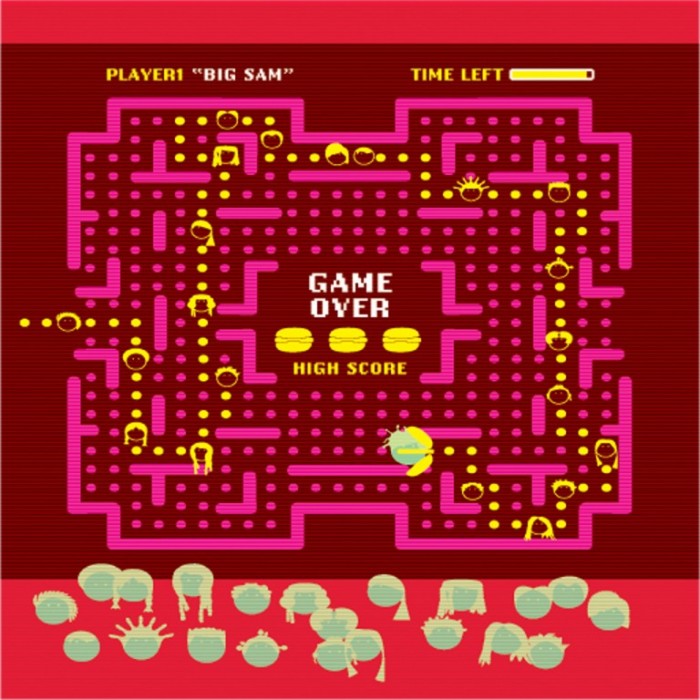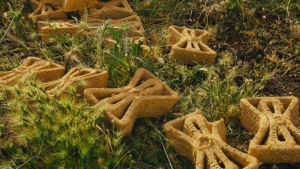First Published in

It will be too little too late. Something needs to be done to advance the case for the world's endowment of cultural diversity. In the same way that today there is CITES that vociferously protects the rights of endangered animals, the world needs to pay attention to its disappearing cultures.
Sub-Saharan Africa and the other countries located in the South have the most to lose if the world pays no attention to the preservation of its cultural wealth. They also have the most resilient peoples, capable of riding the most trying social and political circumstances.
Far from being backward, and unable to make a leap into a post-wired Bluetooth world, the South has been negotiating its way into the new millennium knowing that ubuntu* is the most profound measure of human progress. Ubuntu's central tenet is that our rich cultural diversity, our languages, our rich oral traditions, our arts confer on us what is most valuable to the human condition.
Just as the South is the cradle of humankind, it is also the place that will provide the world its "culture jungles" much like today's jungles of South America. The South will offer the world its most valuable human settlements in the next millennium, as humans begin to treasure their fast-disappearing cultural heritage.
The cultural equivalent of today's rainforests will be found in the South, and the South will have the richest collection of languages, a treasure trove of cultures, the richest tapestry of traditions. Francis Fukuyama wrote in his seminal book: Trust, "Cultural differences will loom larger from now on and all societies will have to pay more attention to culture as they deal not only with internal problems but with the outside world".
It is quite clear that the threat to the majority of the world's indigenous cultures and languages is urgent. If anything the growing 'cultural advances' in the new markets will be seen as evidence of how quickly the world is modernising. Writers such as Zakes Mda, Salman Rushdie, Ben Okri and Toni Morrison offer visions of what such a future offers.
"If anything I do," Toni Morrison has written, "in the way of writing novels (or whatever I write) isn't about the village or the community or about you, then it is not about anything. It seems to me that the best art is political and you ought to be able to make it unquestionably political and irrevocably beautiful at the same time".
Clearly the artists of the South, the writers, the sculptors, the designers, the linguists, the preachers, the teachers, they all have to rally behind the most important project of their lifetime, and follow the example of Toni Morrison and be unafraid to tackle the big political issues of their day. It is in doing so that they will ensure that today's cultural heritage is not pillaged into Northern museums, and is able to remain a vibrant, living monument to the human spirit.
In its wake, the all powerful tornado of globalisation is wreaking havoc on local indigenous cultures and languages. One by one, cultures are disappearing, decimated by a seemingly irreversible march towards a one 'super culture' world with a dominant lingua franca. The armed hunters of the 20th century have been replaced by the suave executives of multinational corporations in their relentless hunt for new markets. Homogenous markets, without boundaries, offering homogenous tastes for global products, and stratospheric profits.
So what must the South do to ensure that the terrifying prospect of cultural zoos does not come to pass? It is quite clear that the South has been inward looking, lacking the courage to take into its own hands the fate of the human race, and has been content to appropriate for itself the tag of second-class citizen. But now is a time for the cultural activists of the South to stand up and be counted, and provide the world an alternative future. They cannot stand by and watch as languages and cultures that have developed over millennia are wiped out in the space of a few generations by the march of global commerce.
The South has to offer to the world more forcefully its own vision of a world that treasures diversity. In her writings the South has celebrated the seamless connection between dream and reality, of matter and spirit and of the individual and the group. The writer Gabriel Garcia Marquez has given the world the most enchanting stories that celebrate a world at once in touch with its tribal self and at home with the most forward-looking innovations in science.
Victor Dlamini is regarded as an industry leader in the field of corporate communication and reputation management. He advises some of South Africa's captains of industry on how to communicate effectively with their stakeholders. Victor graduated cum laude at the University of Natal, Pietermaritzburg, where he read for an honours degree in English Literature. He presents a weekly book review on SAFM focusing on literature from the former colonies.






